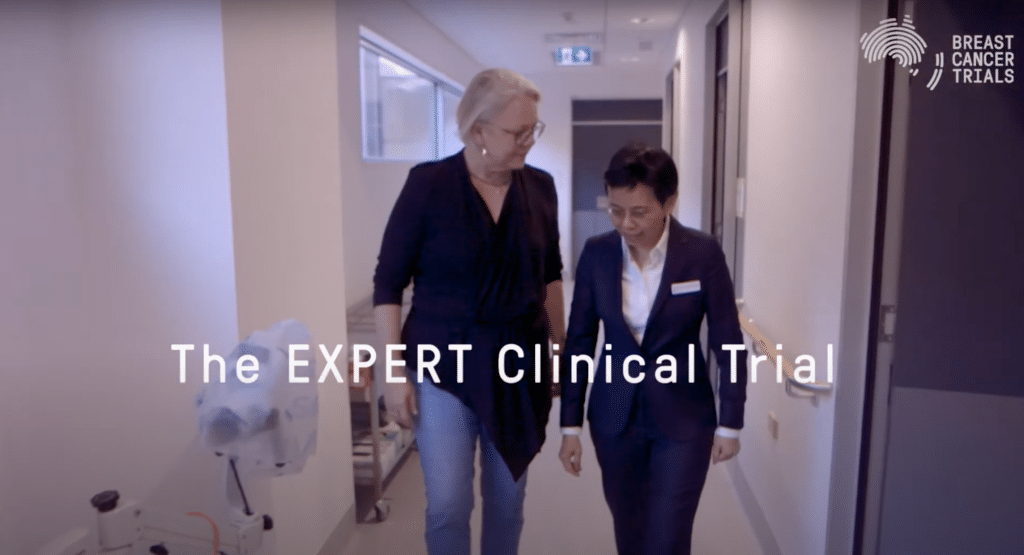- Research
- 2022-2026 Research Strategy
- Open Clinical Trials
- Closed Clinical Trials
- What is a Clinical Trial?
- Why Participate in a Clinical Trial
- Remote Telehealth Pre-Screening Process
- Research Achievements
- Publications
- Research Development and Funding
- Participating Institutions
- International Collaboration
- BCT Trials & Projects Summary
- Translational Research
- Clinical Fellowship Program
- International Fellowship Support
- Annual Scientific Meeting
- Travel Grants and Awards
- About
- Our Impact
- Fundraise
- Donate
- Researcher Login
- Cart
THE EXPERT CLINICAL TRIAL
The current standard of care for patients with early breast cancer is radiation therapy (RT) after breast conserving surgery, to improve local control and survival. However, breast cancer is a complex disease, and the absolute benefit of RT in individual patients varies substantially. This approach potentially may lead to overtreatment for a substantial proportion of patients and unnecessary treatment toxicity, financial costs and logistical challenges for patients. However, randomised trials have not consistently identified patients who may safely avoid RT using conventional clinical-pathologic characteristics.
EXPERT is an investigator-initiated trial which presents a unique opportunity to improve personalised use of radiation therapy in patients with early breast cancer according to their individual risks of local recurrence.
The primary aim of the trial is to see whether a genomic test of breast cancer tissue can be used to identify women who can safely avoid radiation therapy after breast cancer surgery. The need for radiation therapy after breast cancer surgery depends on the risk of the cancer reoccurring. If the risk is very small, there may be no need for radiation therapy. If a doctor could identify women who have a very small risk of the cancer coming back, these women may not need radiation therapy and could avoid its side effects.
Patients who have completed breast cancer surgery and consent to participate in EXPERT will have a piece of tumour tissue (from surgery) submitted for Prosigna Breast Cancer Gene Signature Assay (PAM50) testing. The PAM50 Assay is a validated assay which examines the type and level of gene expression within the tumour. The pattern of gene expression is used determine the breast cancer type and to predict the likelihood of the cancer returning, or the risk of recurrence which is scored between 1 and 100.
The EXPERT study is suitable for patients with a type of cancer called “luminal A breast cancer” that has a risk score of 60 or less. Those who are not eligible (based on cancer subtype and/or score) will continue with treatment off study in consultation with their clinician and will take no further part in the study.





